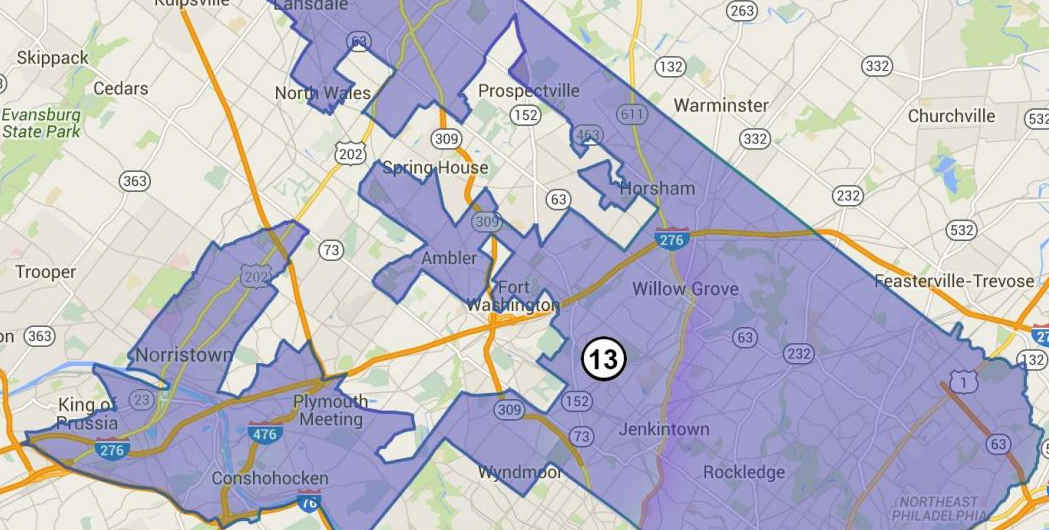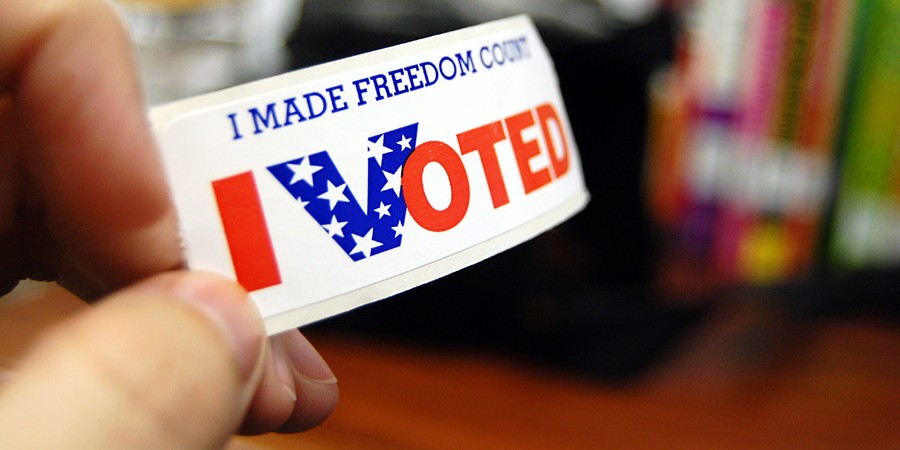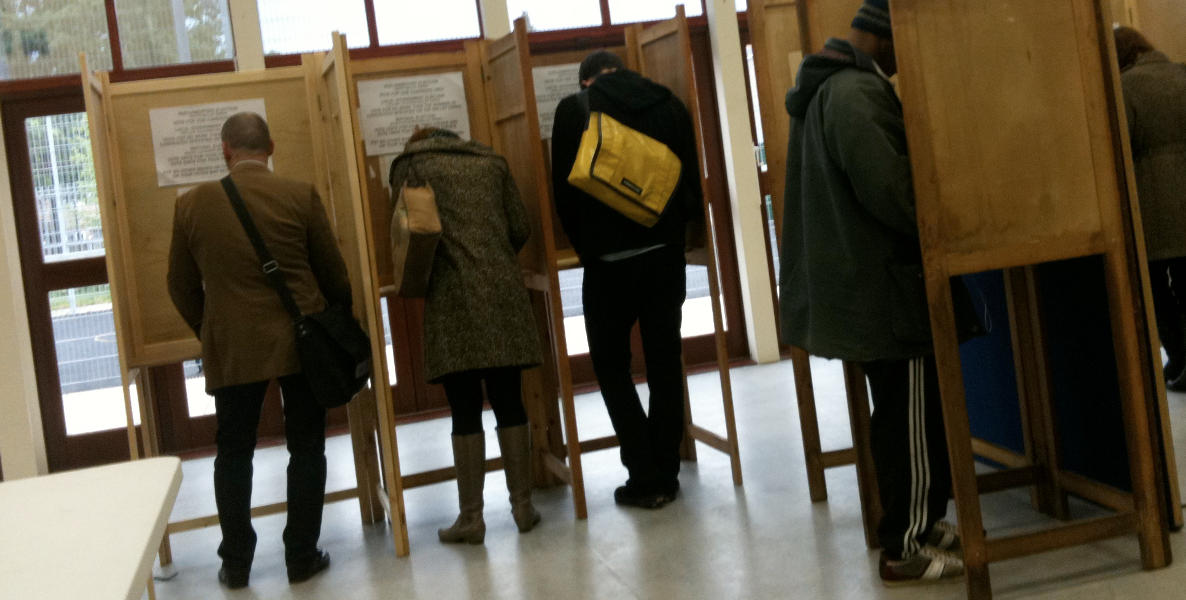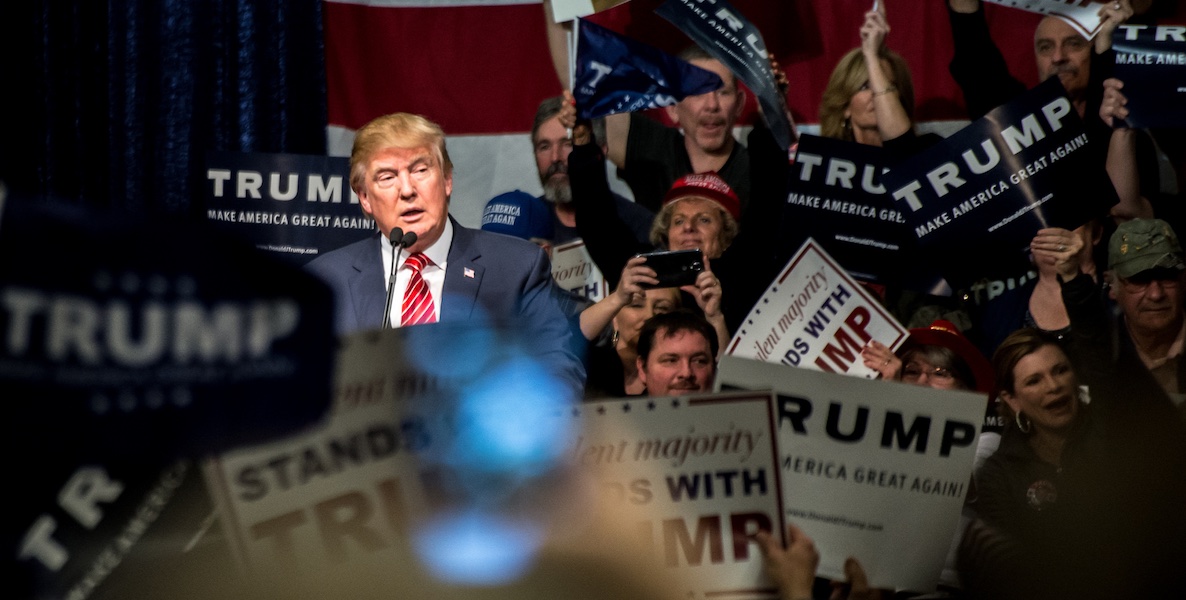Maine has had its own Donald Trump problem since 2010. That’s when, practically by mistake, it elected Paul LePage as its governor. Yeah, this guy:
LePage won the Republican primary in 2010 with 37 percent of the vote. He then went on to win the general election (a five-way race) with—wait for it—37 percent of the vote. Nearly two thirds of his state didn’t want him, and that’s after nearly two thirds of his own party didn’t want him. He’s now largely considered the worst governor in the entire country. Fitting, then, that he was re-elected with less than half of the vote (48 percent) in 2014.
If that story feels familiar, it’s because LePage’s story happened on a national scale with Trump, who won only 44 percent of the votes in the 2016 Republican primary, then won the Electoral College despite winning only 46 percent of the vote (and actually losing the popular vote by at least 1.7 percent). The last time someone won the presidency with so small a percentage of the popular vote, it was Rutherford B. Hayes, who, to solidify his standing after a probably-rigged election, promptly ended Reconstruction and ushered in the Jim Crow era in the American South. Hooray for democracy.
Electoral College aside, how in the world is it possible that candidates who the majority of voters don’t want to win end up winning anyway? And, how can we fix this? The answer, as we’ve detailed before, is Ranked Choice Voting, or RCV. Under RCV, no candidate can win an election without winning a majority of votes. In races with three or more candidates, a majority is ensured by allowing voters not just one vote for one candidate; instead, they rank all of the candidates in order of preference. If their first choice can’t win, then their vote gets shifted to their second choice. The process continues until a candidate crosses that 50 percent threshold.
Maine learned its lesson the hard way with LePage, but it didn’t sit idly by. It actually did something about it. On November 8, its voters adopted RCV by ballot initiative. Maine is the first in the country to do so on a statewide basis (there are some cities which have adopted it previously, including Portland, Maine).
Now, there’s a group in Philadelphia that’s working to do something about it here in our state. Philadelphia Ranked Choice Voting, and related group Pennsylvania Ranked Choice Voting, were founded by people who realized that our voting system is broken and want to do something about it.
Kate Farquhar, a landscape designer from West Philly, first heard about RCV from an interview with Green Party candidate Jill Stein. “It allows for enhanced expression for all voters,” says Farquhar. “If we had RCV, I wouldn’t see so much in-fighting among my family and friends. People who support third-party candidates wouldn’t have to have this tired debate about voting for their ideals or avoiding the spoiler effect. People could just vote for who they believe in.”
The group started after several members independently contacted FairVote, a DC-based nonprofit that supports RCV, asking what they could do to bring RCV to Philadelphia. FairVote put them in touch with each other, and the group was born.
Admittedly, RCV is much more complex administratively than traditional single-choice voting. Many voting machines, such as those used in Philadelphia, aren’t equipped to handle RCV. But, it turns out that our machines can already handle a very similar voting method called Approval Voting, and in fact our Council At-Large and judicial elections already use a watered-down form of approval voting.
Approval Voting asks voters to select all candidates whom they “approve” of for the office at issue. They can vote for any, all, or none of the candidates; a vote for a candidate is akin to a “yes” or “approve” vote, while a candidate not voted for effectively receives a “no” or “disapprove” vote. Approval Voting prevents the classic third-party spoiler effect by allowing people to vote for more than one candidate, meaning that candidates don’t necessary need to compete against one another for the same voter’s vote.
“If we had RCV, I wouldn’t see so much in-fighting among my family and friends,” says Farquhar. “People who support third-party candidates wouldn’t have to have this tired debate about voting for their ideals or avoiding the spoiler effect. People could just vote for who they believe in.”
Again, we already do this in Philadelphia. For Council At-Large and judicial races, voters are permitted one vote for each open seat. For Council, that means five votes regardless of how many candidates there are; for judge, it means one vote for each judicial vacancy, again regardless of the number of candidates.
Unlike RCV, a candidate in the Approval Voting system doesn’t need to get past 50 percent to win—but that’s ok. After all, rather than ranking candidates, voters are voting “yes” or “no” on every single candidate on the ballot. If the goal is to get as much information about a voter’s preferences as possible, the Approval Voting provides stronger, if less nuanced, information than RCV. RCV can’t tell us if a voter would approve of their fourth-ranked candidate actually winning, or if they just hate their fifth-ranked candidate a little bit more. But under Approval Voting, their “no” vote rings loud and clear. And, unlike RCV, Philadelphia’s voting machines can already handle it.
Our quasi-Approval system doesn’t allow for Approval-style voting in all races, only those with multiple seats, so situations like Michael Nutter’s 2007 triumph with 36 percent of the vote would still be a problem. And because of the limited number of votes, it’s much more susceptible to strategic voting, a practice which voting systems should strive to avoid at all costs.
Still, Farquhar says she’s open to the idea of using Approval Voting for all races. “Anything that enhances voter expression in the voting booth is an improvement over what we have right now,” she says. “This is a really elegant solution that addresses a lot of different problems that are difficult to untangle from one another.”
Philadelphia Ranked Choice Voting will be holding its inaugural event tonight, and all are welcome to attend. The group hopes to use the casual conversation to begin to develop an action plan and build towards a community assessment.
Whether it’s RCV or Approval Voting, something has to change in the way we elect our leaders. Maine has taken a bold step in the right direction. Other cities and states need to follow suit as soon as possible, and Philadelphia has a tremendous opportunity to be at the forefront of electoral innovation.








